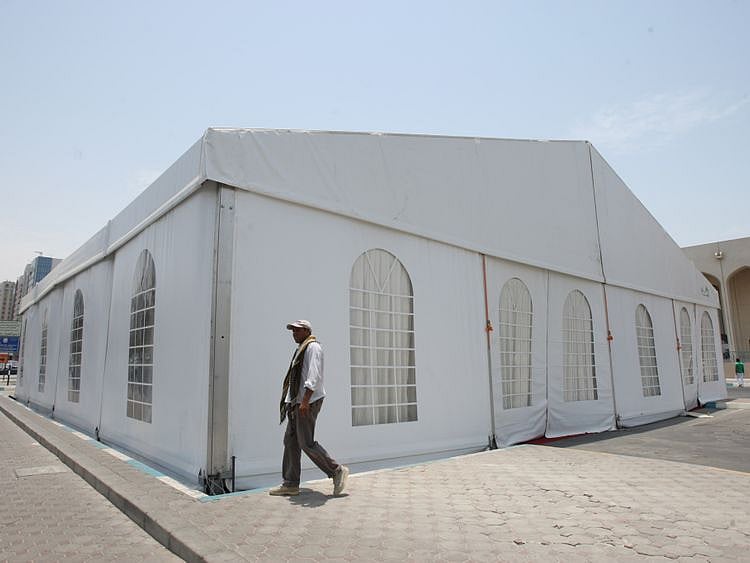Ramadan 2022: Planning to visit an iftar tent? Here are the safety measures you should take in UAE
Precautionary protocols for all operators, diners explained

Abu Dhabi: Ramadan tents are back in the UAE.
The National Crisis, Emergencies and Disasters Management Authority (NCEMA) announced recently that tents can be set up after operators obtain the necessary permits from Emirates Red Crescent, with local authorities having the final say on the number and location of the marquees.
What is a Ramadan tent?
As in the rest of the Middle East, iftar tents have long been a prominent feature of Ramadan in the UAE, with charity organisations, mosques, individuals and companies seeking permits in order to offer iftar meals to worshippers at the time of ending their fast. Hotel and restaurants also set up tents to build on the traditional vibes of the month.
With their larger spaces, these tents allow worshippers an opportunity to share a meal in a communal space, enhancing the community spirit and offering a venue for rest and relaxation before the nightly Ramadan prayers. And all for those who have left their family members in their home countries, tents operated by mosque authorities are a welcome venue for some social interaction and community meal-sharing after a day of fasting.
Open to people of all faiths, the UAE also runs a number of prominent iftar tents. The facilities outside the Sheikh Zayed Grand Mosque in Abu Dhabi, for instance, accommodated 30,000 people every evening in 2019, serving food to people as a testament to the UAE’s generous spirit.
Since the start of the COVID-19 pandemic, however, Ramadan tents had been suspended as a precautionary measure. The NCEMA announcement, in response to a significant decline in daily COVID-19 cases, has been welcomed by residents, who are looking forward to a Ramadan yet again highlighted by community events and worship.
Precautionary measures
A number of precautionary measures and regulations are still in place to ensure the safety of these communal meals.
For diners:
Green pass: You must present a green pass on Alhosn app to enter an iftar tent.
Face masks: Face masks must be worn inside, except when eating.
Physical distancing: A one-metre physical distance must be maintained between attendees.
For operators:
Opening time: Tent operators must open the tents two hours before the Maghrib prayer, which signals the end of the fasting and the start of iftar, to avoid crowding.
Operating capacity: Local authorities in each emirate will set capacity restrictions for iftar tents, which must be followed.
Ventilation and cooling: Tents should be built in a manner that ensures sufficient ventilation. NCEMA said tents must be designed “in the shape of an umbrella, meaning they should be open from all sides, or air-conditioned, given high outdoor temperatures”.
Tableware: Only single-use cutlery and disposable tablecloths must be used in tents.
Security: Security personnel must monitor the entry and exit of attendees and their adherence to precautionary measures.
PPE and sanitisers: Additional facemasks and sanitisers must be provided in every tent.
Sanitisation: Operators must regularly sanitise the tent and its facilities.
Reminders: Volunteers and organisers must remind visitors to wear masks and maintain physical distancing.
Sign up for the Daily Briefing
Get the latest news and updates straight to your inbox
Network Links
GN StoreDownload our app
© Al Nisr Publishing LLC 2025. All rights reserved.